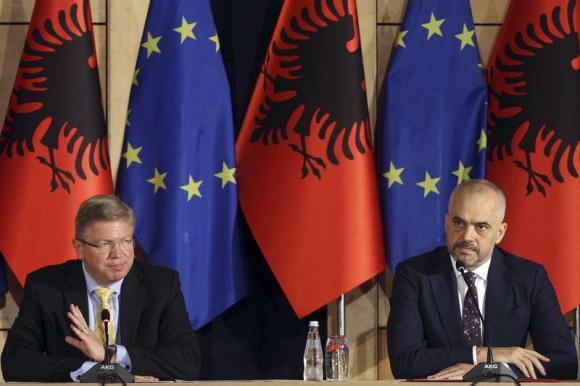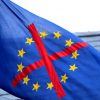
On 4th June, the European Commission recommended that Albania be granted candidate status to EU member states. This is a much awaited moment for the small Western Balkans country, which has been actively and persistently attempting to join the EU since its application in 2009. However, the final verdict will be given on 26th and 27th June, when the European Council is set to decide whether Albania will finally be granted candidate status.
This is not the first time that the EC recommended that Albania join the EU. In 2013, Albania celebrated its first successful democratic, transparent, and uncontested general election, which was a test that the EU continuously stressed as essential to be considered for obtaining candidate status. Almost all previous elections had been followed by political disputes, which later made any possibility for real reform in the country quite difficult to achieve. While, as mentioned, the country was successful in completing this task, certain EU member states, in particular the Netherlands, still deemed Albania as not being ready to become an official candidate. This disappointed the newly elected socialist government, led by Prime Minister Edi Rama. This time, however, the EC recommendation seems to be more firm, as its report shows that Albania has made progress in the fight against corruption, organized crime, and judiciary reform. Furthermore, since the last Council summit, Albania has been fully aligned with the EU in CFSP, especially regarding sanctions to Russia in the current Ukrainian conflict.
Nevertheless, Albania faces internal political problems, which the EU cannot ignore, namely, the inability to reach consensus between government and opposition on virtually any political matter. However, both the government and the opposition are extremely supportive of EU accession, as the EU has been regarded as the mechanism to keep peace and stability in the troublesome region of the Balkans. For Albania, the EU is its key aspiration in order to gain a spot in international politics. But, despite both parties having a common goal, a common European agenda, there is a lack of dialogue between them. Thus, the government and the opposition should find a common language to overcome the challenges that come with EU integration.
However, Albania is not the only one with problems. The Union is obviously at a stall regarding enlargement, which, until now, has been its most successful foreign policy. After the 2004, 2007 and 2013 enlargements, the EU does not seem eager to accept new members until at least 2021. Nevertheless, the full adoption of and alignment with the acquis will take a long time for Albania, which has to undergo drastic reforms in fields such as the judiciary or environment; therefore, even if the EU grants candidate status to the country, it is very unlikely that it will become a member state for at least a decade .
While in the two enlargements of 2004 and 2007, the EU was not particularly demanding about fulfilling conditions for entry, the conditions that have been set for Albania have to be fully completed before even receiving candidate status. The problem is that these conditions, which follow the Copenhagen criteria, have been criticized for being too broad, not concrete enough, and short-sighted at times. Broad concepts such as “institutional reform” are not feasible in a short period of time, and “fighting corruption” is likely to take decades in Albania, as the problem is both high level and low level corruption that takes place in daily life and has become a part of Albanian “mentality”.
The EU has also been criticized for not using positive reinforcement after fulfilling conditions with many candidate states, and even with some member states. After the successful elections of 2013, Albania believed it would receive candidate status after satisfying this crucial condition, but the status was rejected. Overall, the lack of reward, absence of clarity and openness in the conditionality system has led to EU fatigue in Albania. If member states veto Albania’s application again at the end of this month, the damage to the country’s ego will be significant. The progress that Albania has made, especially since 2013, should be recognized.
Finally, although EC commissioner for enlargement Štefan Füle stated that enlargement policy will not be affected by the outcome of the recent EP elections, Albania should still be cautious, as the far right and Eurosceptic parties that rose in the elections are against enlargement, with one of their main fears being immigration. Specifically, Albania should be wary of France and the UK, and if there is a member state that could veto Albania’s status, it is the UK. On the other hand, if the status is granted, Albania could still face opposition from the EU parliament on certain issues and problems in negotiations with member states. This is a particularly difficult time for the country to aim at joining the club.

